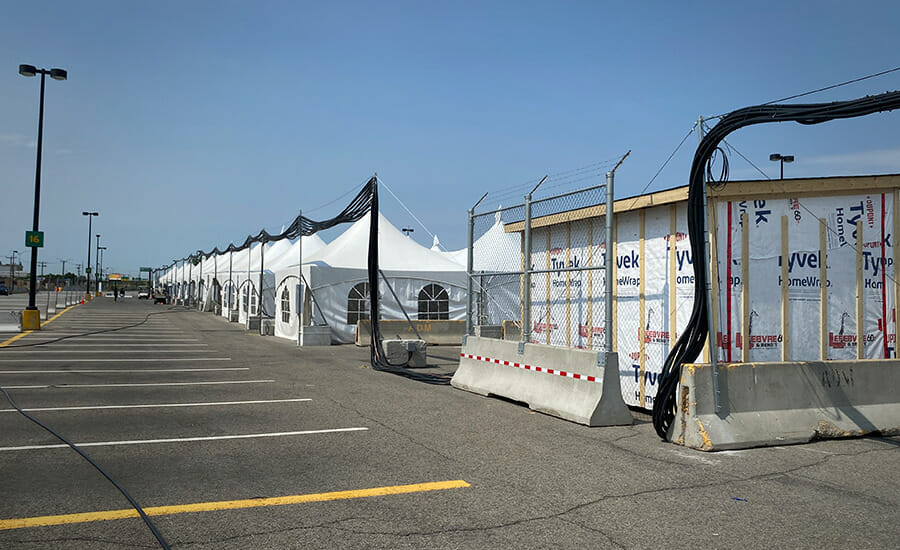A passion for engineering, and desire to make a difference in the community, pushed EXP’s mechanical, electrical and civil engineering teams to outdo themselves once again. Working under a tight, two-week timeline, as part of a fast-track project awarded by the Montreal West Island Integrated University Health and Social Services Centre, our experts successfully set up Quebec’s first drive-through COVID-19 vaccination clinic in a Montreal-Pierre Elliott Trudeau International Airport parking lot.
Our teams started working on the project on April 23, with a requirement for everything to be ready by May 10 for technical and operational testing and before vaccinations began on May 17. First of its kind in Quebec, the site was implemented to speed up vaccinations while reducing viral transmission risks, as people could get their shot while never having to leave their vehicle.
“Thanks to the exceptional teamwork between all the project’s stakeholders and contractors, the work was delivered on time. We managed to design the plans and set up the facilities in record time by acting strategically. For example, we designed the plans according to the construction material available at the time, since we could not lose a day of work waiting for it to be delivered. Everything was designed to save time without losing sight of our client’s needs,” explains Stéphane Roy, building electrical lead at EXP’s Montreal office.
The site needed to be set up so it could be fully autonomous from the airport. “A sanitary block was installed and linked to the airport’s sewer system and temporary shelters were built to serve as electrical rooms to power the site. Furthermore, we needed to make sure that people could move around across the entire site while also allowing access for emergency vehicles. To give you an idea of the size of the site, it covers approximately 544,000 SF (50,600 m2 ), and over 13,450 ft (4.1 km) of electrical cabling has been installed. This project was an interesting challenge, and we are proud to say that we leveraged our expertise for the health of the community,” says Stéphane.
Congratulations to the whole team who contributed to the success of the project, and a special thank you to Stéphane Roy, Richard Laliberté and Alexandre Amja.
For additional information:

